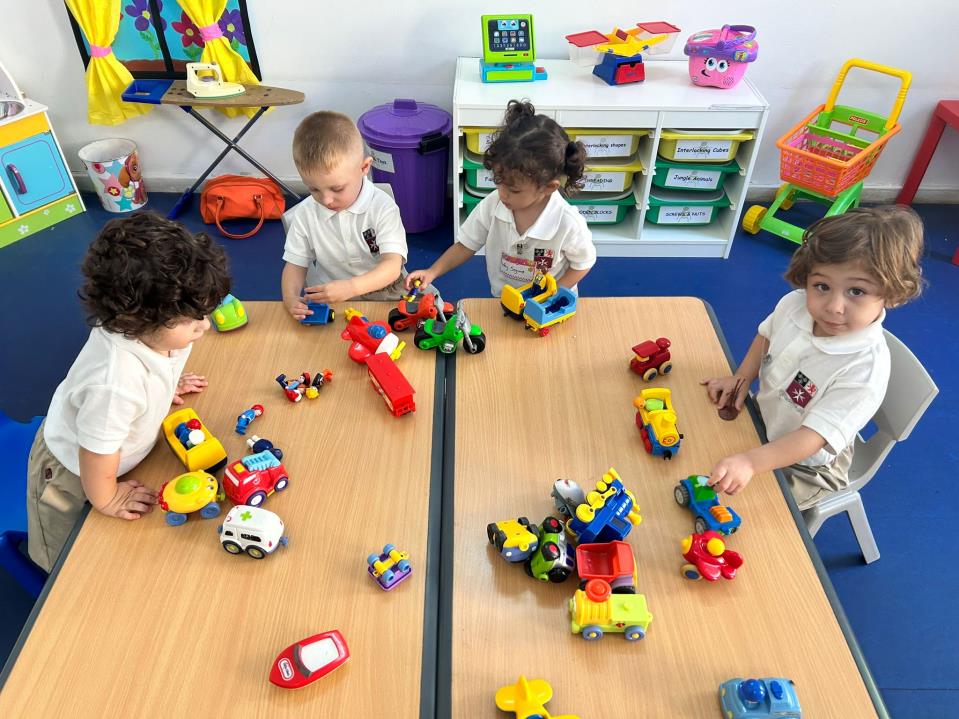St Edward's College, a prestigious institution long known for its commitment to academic excellence, is undergoing a significant transformation by embracing co-education. The transition has already begun in the Early Years section, marking a historic shift that aligns with contemporary educational trends. While the move to a co-educational model brings numerous benefits, it has not been without its challenges. However, the experiences in the Early Years section have demonstrated that these hurdles can be effectively addressed, paving the way for a seamless transition throughout the school.

Ms Stephanie Grech, Head of the Early Years section
Enhanced Social Development
"One of the most noticeable benefits of co-education in the Early Years at St Edward's College has been the improvement in social development among young learners," said Ms Stephanie Grech, head of the Early Years section. Children at this age, she explained, are highly impressionable, and exposing them to a mixed-gender environment from the start fosters natural and healthy interactions. Boys and girls learn to communicate, collaborate, and respect one another's perspectives, breaking down gender stereotypes early on. In the Early Years, Ms Grech said that teachers have observed that both boys and girls become more empathetic and adaptable when interacting with peers of different genders, equipping them with essential life skills for the future.
Improved Learning Environment
Research has shown that children learn better when exposed to diverse perspectives. At St Edward's College, the co-educational model has enriched classroom discussions and activities where children often approach problem-solving differently, leading to a more dynamic and well-rounded learning experience. For example, while some children may be more inclined towards verbal expression, others may excel in hands-on activities, creating a balanced classroom environment that caters to a variety of learning styles. "This, too, is diversity and reinforces the re-life model of social variety and interaction," observed Ms Grech.
The real world is not a single-gender world, and introducing children to this reality from an early age prepares them for future academic and professional environments. By learning to work and communicate with the opposite gender from a young age, students at St Edward's College are better equipped for teamwork and collaboration in their future careers. Mixed-gender activities, such as group projects and play-based learning help children build confidence in engaging with all peers, rather than being limited by gender divisions.

Challenges and Solutions
Change is often met with resistance, and the transition at St Edward's was no exception. With over a decade of co-ed experience in the Early Years, the proactive approach taken by St Edward's College has ensured that the initial obstacles were met with effective solutions.
Some parents and staff members were initially hesitant, concerned about whether boys and girls would thrive equally in a shared environment. This came at a time when the move to co-ed was being undertaken nationwide across state schools and was also widespread in private and church schools. The College had adopted a conservative approach and introduced co-ed in the Early Years, following the earlier introduction of co-ed at Sixth Form level. In so doing, it applied lessons learnt from the eldest cohort to the youngest in the College. "This is why, we are now confident that going co-ed across the board will be a logical and relatively seamless next step," added Ms Grech.
To build on this experience, St Edward's College has now introduced professional development sessions focused on gender-inclusive teaching strategies. Teachers are trained to create lesson plans that encourage equal participation and highlight the strengths of all students, regardless of gender. The integration of interactive and cooperative learning activities will further ensure that both boys and girls remain equally involved in their education.
Managing Social Dynamics
Young children are still developing their social skills, and the continuation of a co-educational setting requires careful management of classroom dynamics. To foster a more integrated environment and learning from over a decade of co-ed experience in the lower Early Years, educators will be implementing structured activities that encourage cross-gender teamwork. "From group storytelling to mixed-gender play areas, these initiatives will help promote friendships across genders," observed Ms Grech.
St Edward's introduced a variety of extracurricular activities that appealed to a broad range of interests, ensuring that both genders feel represented and encouraged to explore their strengths. From concerts to Capoeira, teachers make a conscious effort to promote inclusivity through sports, creative arts and leadership roles and across all other activities.

A Bright Future for Co-Education at St Edward's
The success of co-education in the lower Early Years section of St Edward's College serves as a promising indicator for the rest of the institution's transition. While challenges exist, the proactive and research-backed approach taken by the school has ensured a smooth and effective adaptation. The positive changes observed in academic publications such as enhanced social skills, a more inclusive learning environment, and better preparation for real-world interactions, augur well for the long-term benefits of this shift.
As the school continues its journey towards full co-education, the lessons learned from the lower Early Years will provide valuable insights for the future. With strong support from educators, parents, and the wider community, St Edward's College is well on its way to becoming a leading example of how co-education can foster a balanced, inclusive, and enriching educational experience for all students.
Sponsored Content